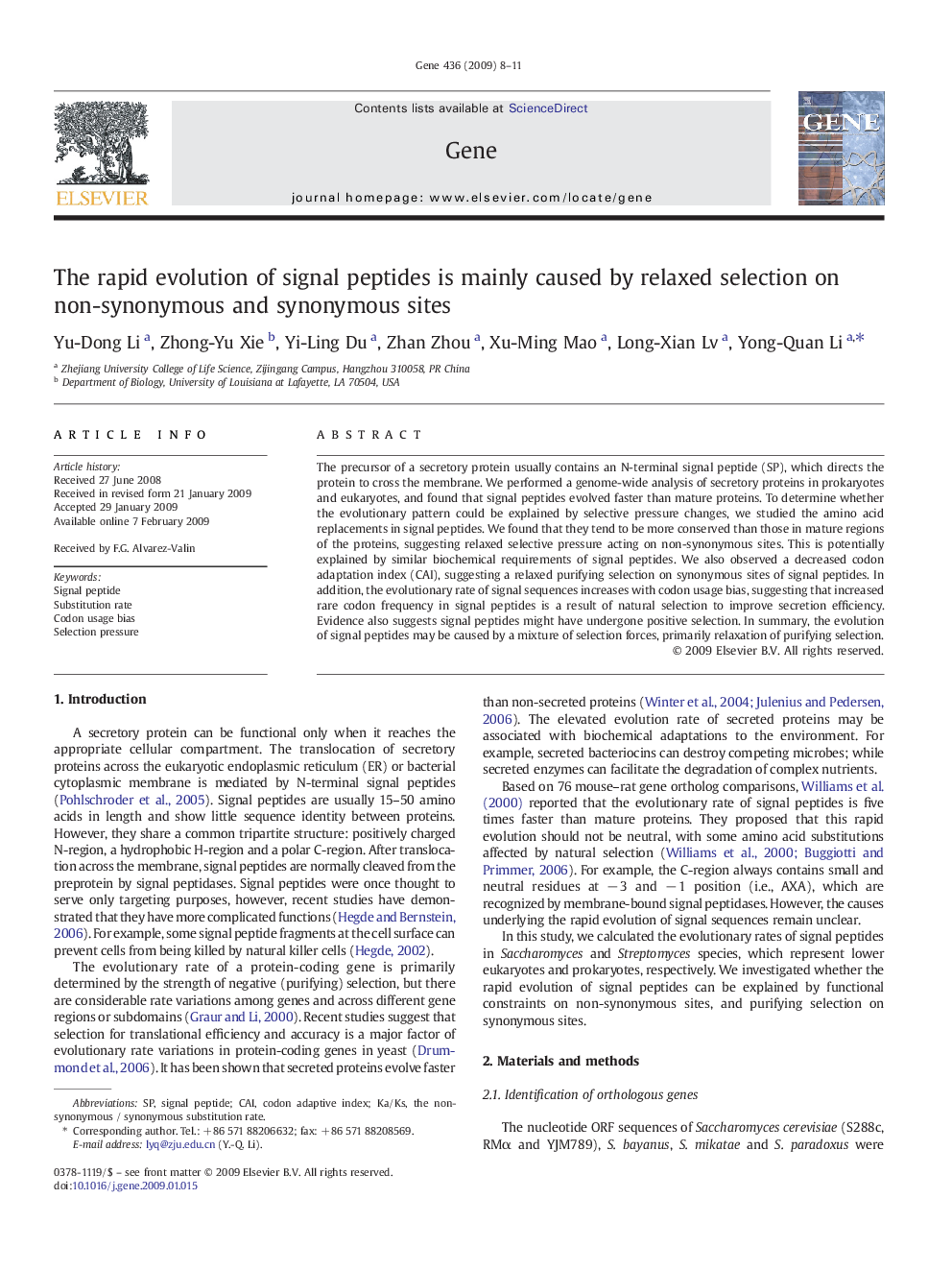| کد مقاله | کد نشریه | سال انتشار | مقاله انگلیسی | نسخه تمام متن |
|---|---|---|---|---|
| 2818971 | 1569895 | 2009 | 4 صفحه PDF | دانلود رایگان |

The precursor of a secretory protein usually contains an N-terminal signal peptide (SP), which directs the protein to cross the membrane. We performed a genome-wide analysis of secretory proteins in prokaryotes and eukaryotes, and found that signal peptides evolved faster than mature proteins. To determine whether the evolutionary pattern could be explained by selective pressure changes, we studied the amino acid replacements in signal peptides. We found that they tend to be more conserved than those in mature regions of the proteins, suggesting relaxed selective pressure acting on non-synonymous sites. This is potentially explained by similar biochemical requirements of signal peptides. We also observed a decreased codon adaptation index (CAI), suggesting a relaxed purifying selection on synonymous sites of signal peptides. In addition, the evolutionary rate of signal sequences increases with codon usage bias, suggesting that increased rare codon frequency in signal peptides is a result of natural selection to improve secretion efficiency. Evidence also suggests signal peptides might have undergone positive selection. In summary, the evolution of signal peptides may be caused by a mixture of selection forces, primarily relaxation of purifying selection.
Journal: Gene - Volume 436, Issues 1–2, 1 May 2009, Pages 8–11